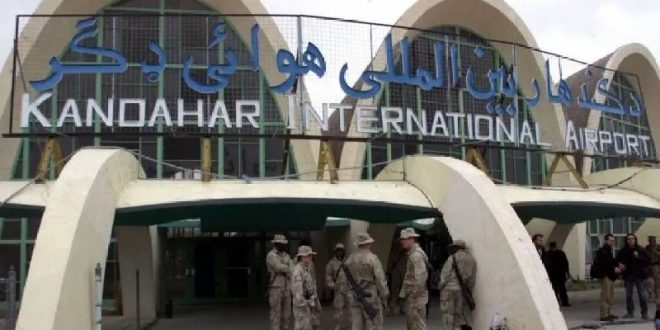01-08-2021
This story is based on reporting by PMI correspondents on the ground in Afghanistan. Their names are being withheld for their protection with reporting by AFP and Reuters.
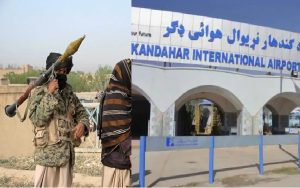 KABUL/ ISLAMABAD: Rockets struck Kandahar airport in southern Afghanistan overnight as government forces continued to battle major Taliban offensives that crept to the gates of three major cities.
KABUL/ ISLAMABAD: Rockets struck Kandahar airport in southern Afghanistan overnight as government forces continued to battle major Taliban offensives that crept to the gates of three major cities.
The Taliban on August 1 claimed the attack on the airport and said it was aimed at stopping air strikes as a weeks-long militant offensive continues around Afghanistan’s second-largest city.
Airport officials said the rockets damaged the runway and halted flights but that repair teams were already working on restoring operations.
“Last night, three rockets were fired at the airport and two of them hit the runway,” airport chief Masud Pashtun told AFP on August 1. “Due to this, all flights from the airport have been canceled.”
The airport is essential to logistics and air support for Kandahar.
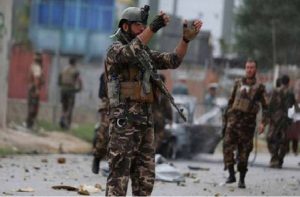 National security forces have focused much of their attention on maintaining control of population centers even as Taliban fighters overran dozens of districts around the country since the pullout of U.S.-led international forces began in May.
National security forces have focused much of their attention on maintaining control of population centers even as Taliban fighters overran dozens of districts around the country since the pullout of U.S.-led international forces began in May.
The attack on Kandahar’s airport came with Taliban fighters battling in and around two other major Afghan cities: Herat in the west and Lashkar Gah in the south.
The fate of all three provincial capitals could be key to whether the Kabul government can maintain control of major cities and much of the rest of the country without international troops, who have been fighting the Taliban for two decades.
The Taliban has reportedly captured half the country’s districts and several key border crossings.
Afghan security forces and Taliban militants clashed again on the outskirts of the western Afghan city of Herat on July 31, a day after the militant group attempted to storm into that city and captures a road to the airport there.
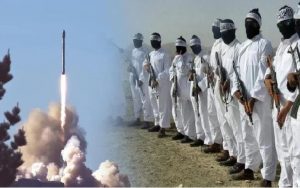 A Taliban spokesman, Zabihullah Mujahid, told RFE/RL’s Radio Azadi on July 31 that the Taliban’s advance on Herat was in response to attacks by government forces and pro-government militia forces on Taliban-held areas nearby.
A Taliban spokesman, Zabihullah Mujahid, told RFE/RL’s Radio Azadi on July 31 that the Taliban’s advance on Herat was in response to attacks by government forces and pro-government militia forces on Taliban-held areas nearby.
The governor of Herat Province, Abdul Sabur Qani, said the Taliban had been pushed back from the provincial capital, echoing statements made to Radio Azadi on July 30 by officials from Afghanistan’s Defense Ministry and Interior Ministry.
Qani said about 200 Taliban fighters were killed “in air strikes and ground operations” while attempting to advance into the city from the adjacent Guzara district.
The governor said pro-government militia fighters led by Herat’s powerful factional leader Ismail Khan under the banner of “people’s resistance forces” are fighting against the Taliban alongside Afghan government troops in the Guzara district.
A Herat police officer who has been fighting for days told Radio Azadi that the morale of the city’s defenders was being hurt by logistics problems.
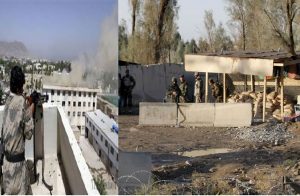 Meanwhile, in Lashkar Gah, the capital of the southern province of Helmand, heavy fighting also was reported on July 31 between Afghan security forces and Taliban militants who entered parts of the city two days earlier.
Meanwhile, in Lashkar Gah, the capital of the southern province of Helmand, heavy fighting also was reported on July 31 between Afghan security forces and Taliban militants who entered parts of the city two days earlier.
A provincial councilor in Helmand, Abdul Majid Abkhundzada, said air strikes hit a private hospital where Taliban fighters were hiding but Mohammad Din Narewal, the owner of the 20-bed Afghan Ariana Specialty Hospital, told the Associated Press that “there were no Taliban in the hospital” and that he’d been told the Afghan Air Force erroneously bombed the building — killing one person and wounding three.
Akhundzada also expressed fears about the ongoing conflict and said “many civilians have been trapped inside the war zone.”
 Pressmediaofindia
Pressmediaofindia
